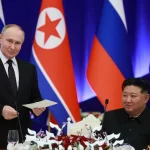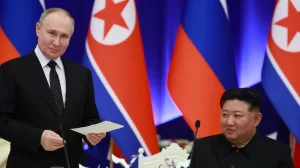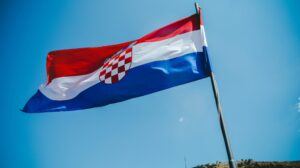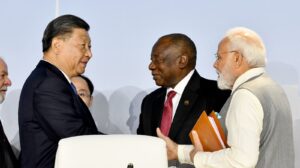January 1st 2023 marked the start of a new era for Croatia. With its accession to the Schengen area confirmed, border controls were abolished and the kuna was replaced by the euro as the country’s national currency.
The President of the European Commission, Ursula von der Leyen visited Zagreb to mark the occasion. A small crowd gathered in the city’s main square to watch von der Leyen having a coffee with Croatian Prime Minister Andrej Plenković … and then paying in euros.
Residents here seem happy about the change, with many looking forward to hassle-free travel in and out of neighbouring countries.
“This is very good for all Croatian people, for all Europe, yes, of course. Because we wait always 1-2 hours at the border, to cross the border. And now it is perfect, we like this, very good,” said one man.
And there’s good news for visitors, too. The change in currency means it’s one less thing to worry about for most European tourists.
“I’m from The Netherlands, so every time I come here I have to exchange Euros for Kunas, and now I don’t have to do that, so it’s very nice. And I think that since Croatia is already part of the European Union, it just makes everything a lot easier,” explained one visitor.
On Sunday, von der Leyen, Plenković and Slovenian President Nataša Pirc Musar held a joint press conference at a key border crossing between Croatia-Slovenia.
“The next generation of Croatians will grow up in Schengen,” said von der Leyen. “People will be able to travel freely, business will be unhindered by checks, seamless travel will bring tangible results for people living along the border, working across the border or having family on both sides of the border.”
Croatia is the first country to join the Schengen zone in 11 years. But it could also mean a heightening of security along its borders with non-EU nations, such as Bosnia and Serbia.
The border between Slovenia and Croatia is 670 kilometres long. The press conference was held at its busiest point, about 10 kilometres from Zagreb. In 2019, the last year before the pandemic, 29 million people were registered at the border crossings between the two countries.






































